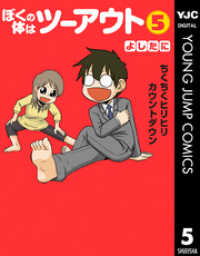- ホーム
- > 洋書
- > 英文書
- > History / World
Full Description
This book focuses on one of the most visible and important consequences of total defeat in postwar Germany: the return to East and West Germany of the two million German soldiers and POWs who spent an extended period in Soviet captivity. These former prisoners made up a unique segment of German society. They were both soldiers in the war of racial annihilation on the Eastern front and then suffered extensive hardship and deprivation themselves as prisoners of war. The book examines the lingering consequences of the soldiers' return and explores returnees' own responses to a radically changed and divided homeland. Historian Frank Biess traces the origins of the postwar period to the last years of the war, when ordinary Germans began to face the prospect of impending defeat. He then demonstrates parallel East and West German efforts to overcome the German loss by transforming returning POWs into ideal post-totalitarian or antifascist citizens. By exploring returnees' troubled adjustment to the more private spheres of the workplace and the family, the book stresses the limitations of these East and West German attempts to move beyond the war.
Based on a wide array of primary and secondary sources, Homecomings combines the political history of reconstruction with the social history of returnees and the cultural history of war memories and gender identities. It unearths important structural and functional similarities between German postwar societies, which remained infused with the aftereffects of unprecedented violence, loss, and mass death long after the war was over.
Contents
List of Illustrations ix Acknowledgments xi INTRODUCTION 1 PART ONE: From War to Postwar 17 CHAPTER ONE: Impending Defeat: Military Losses, the Wehrmacht, and Ordinary Germans 19 CHAPTER TWO: Confronting Defeat: Returning POWs and the Politics of Victimization 43 CHAPTER THREE: Embodied Defeat: Medicine, Psychiatry, and the Trauma of the Returned POW 70 PART TWO: Making Citizens 95 CHAPTER FOUR: Survivors of Totalitarianism: Returning POWs and the Making of West German Citizens 97 CHAPTER FIVE: Antifascist Conversions: Returning POWs and the Making of East German Citizens 126 CHAPTER SIX: Parallel Exclusions: The West German POW Trials and the East German Purges 153 PART THREE: Divergent Paths 177 CHAPTER SEVEN: Absent Presence: Missing POWs and MIAs 179 CHAPTER EIGHT: Divided Reunion: The Return of the Last POWs 203 CONCLUSION: Histories of the Aftermath 227 Notes 233 Bibliography 307 Index 359
-

- 電子書籍
- ふれあえない夫婦 逆襲のモラハラサレ妻…
-

- 電子書籍
- 魔弾の銃士【タテヨミ】第82話 pic…
-

- 電子書籍
- 青くんはもっともっと愛したい ~執着彼…
-

- 電子書籍
- ぼくの体はツーアウト 5 ヤングジャン…




